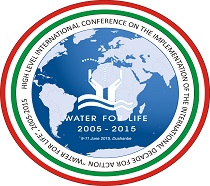Tax system
Taxation in Tajikistan is based on the rules and regulations under the Tax Code of the RT (TC) enacted on January 1, 2007. The document is the only normative and legal act regulating the taxation issues. Only Majlisi Namoyandagon Majlisi Oli of the Republic of Tajikistan have the right to make amendments and additions to the Code and also deal with issues related to interpretation of its regulations in the form of corresponding resolution on submission of the Government of the RT. Currently the tax system of the Republic is structured in two directions: by the type of taxation - direct and indirect taxes and by distribution of tax revenues between the budgets - republican and local tax revenues.
As a total Tax Code envisages paying of 20 taxes, 16 of which are republican and 4 are local taxes. For each taxpayer it is very important that other compulsory republican and local payments are envisaged in both republican and local taxes. The order of the mentioned compulsory payments is regulated by the Law of the Republic of Tajikistan "On other payments".
When considering the issue of foreign investment taxation, it should be taken into account that according to the Law "On foreign investments" can be implemented in any form:
· Traditional - direct investments defined as capital investments aiming at considerable or a complete control over the activity of investment object;
· Portfolio investments - the investor is a holder of a certain percentage of the total amount of shares issued by the national enterprise;
· Obtain vested interests - the right to use land or other natural resources, and also other vested interest;
· The right to conclude any agreements envisaging other forms of foreign investment.
Thus the enterprises with foreign investments can either have a share of foreign participation or 100 percent of foreign capital. However all these enterprises should be registered in tax authorities of the Republic of Tajikistan as taxpayers in line with the rules and procedures of registration under Articles 45 and 46 of Tax Code. Consequently, the enterprises have to pay all taxes envisaged by the tax legislation of the Republic.
For the purpose of taxation it is necessary to distinguish enterprises with participatory interest of foreign investment and foreign legal entities - the companies, firms and any other organizations created in accordance with legislation of foreign states and operating and creating constant institution-non-resident according to Article 164 of the TC of the RT.
At the same time, if the investment is carried out through participatory interest in the capital of the resident's enterprise, then these investments go under the regime of the unlimited tax liability. If separate subdivisions of foreign legal entities are created, then they bear limited tax liability within the activity carried out within the representation in Tajikistan.
Taxation of profits of the foreign legal entity it is carried out based on Chapters 18-21 of the Tax Code, but considering the application of international agreements norms on avoiding double taxation with account of special features of its application mentioned in Chapter 22 of the Tax Code.
The enterprise profit is imposed to profits tax at interest of 25%. The object of taxation is a gross revenue received from the source in the RT and decreased by the sum of expenditures (deduction) carried out during the reporting tax period and related to receiving such a profit. Taxable income is reduced for expenses related to payment of the established taxes with account of limitations envisaged by the Tax Code of the Republic of Tajikistan, expenses for labor payment, provision of workers with material and social benefits imposed to profits tax, expenses related to payment for the purchased raw, materials, energy except for substantial expenses Doubtful debts, scientific researches expenditures, project developments, development engineering works, depreciation charges on the fixed assets and others are subject to deduction (with account of certain limitations under the Tax Code of the Republic of Tajikistan). The deduction is carried out by the taxpayer having properly prepared documents confirming expenses related to getting the gross revenue. Profits tax of the non-resident is collected from the source of the profit payment in the Republic of Tajikistan in line with the order under Chapter 20 of the Code. In addition to the profits tax, the permanent institution of the foreign juridical person is liable to the tax on net profits of this permanent institution with interest rate of 8 percent. The resident enterprises obtaining a share of foreign investor participation in the capital are liable to all taxes except for the net profits tax.
In the Republic of Tajikistan there is a unified positive VAT rate - 20 percent for domestic production and import. The payer of VAT is a person registered or obliged to register as a VAT-payer. Export of goods except for raw cotton, ginned cotton and primary aluminium, precious metals and precious stones, jewelry made of precious metals and precious stones, is liable to the value added tax by zero rate.
The excises exist only on six positions of nomenclature of foreign economic activity - spirits, alcoholic and non-alcoholic drinks; tobacco; oil products; motor cars and other motor transport facilities for transportation of people, automobile tires; jewelry of gold, platinum or silver.
The order of calculation and payment of the VAT rate and of import excises is regulated by the tax legislation.
In accordance with Article 247of the Tax Code of the Republic of Tajikistan the Government of the Republic of Tajikistan has adopted the Resolution № 126 of April 2, 2007 "On the rates of the excise tax on some goods produced in the Republic of Tajikistan and imported to the Republic of Tajikistan".
In accordance with Article 20 of the Law of the Republic of Tajikistan "On foreign investments in the Republic of Tajikistan", the customs duties of goods delivered to the address of the enterprise with foreign investments envisage reduction of payment for the property transported to the Republic of Tajikistan as a contribution of foreign investor made to the authorized fund of the enterprise under Tax and Customs Code of the Republic of Tajikistan.
For the purpose of improvement of investment climate, in accordance with Point 6 Article 145 of Tax Code of the Republic of Tajikistan, the following enterprises are exempted from profits tax: "new enterprises created in the sphere of goods production in the year of state registration and beginning from the year following the year of primary state registration when introducing them by the founders with account of minimal sizes of investments fixed by the legislation to the authorized fund of such enterprises of the below mentioned volumes for the period of:
- 2 years in case the investment volume is up to US$ 500 thous.;
- 3 years in case the investment volume is over US$ 500 thous. up to US$ 2 million;
- 4 years in case the investment volume ranges from US$ 2 to 5 million;
- 5 years in case the investment volume exceeds US$ 5 million".
In Article 211 of the Tax Code exemption from VAT is established in respect to the fixed assets import except for excise goods to form or replenish the authorized fund of the enterprise in accordance with its constituent documents during 3 years from the date of state registration (re-registration by virtue of authorized fund increasing) of the enterprise the authorized fund of which is registered in accordance with normative and legal acts of the Republic of Tajikistan in 7 million somoni and within 5 years with regard of an enterprise the authorized fund of which is registered in accordance with normative and legal acts of the Republic of Tajikistan in over 7 million somoni. Import of the personal property transported to the Republic of Tajikistan by foreign workers of the enterprises with foreign investments and intended for their personal usage is also exempted from VAT.
In 2007 there were included some special tax regimes to the Tax Code to attract investors to the two priority spheres of economy - generation of hydro electric power (Chapter 49) and treatment of ginned cotton to the end-use product (Chapter 50).
In Chapter 49 it is envisaged that "for the period of construction of the HPS on the territory of Tajikistan, the Client and the General Contractor of the construction are exempted from the following taxes (since the beginning of payment date), directly connected with this construction: (1) value added tax; (2) tax paid by the highways users; (3) profits tax of juridical persons; (4) enterprise minimal income tax; (5) land tax; (6) tax paid by owners of transport means; (7) immovable property tax; (8) social tax from persons directly employed in construction of the HPS and being not the citizens of the Republic of Tajikistan; (9) national duty for registration of the issue prospectus of the non-state securities, implemented in view of construction of the HPS".
Besides import of goods for construction of HPSs being of special importance for the Republic of Tajikistan is subject to exemption from the value added tax and customs duties.
Suppliers and subcontractors of the above-mentioned construction are also exempted from the VAT, the tax paid by the users of highway directly subjected to imputation with regard of construction of the HPS and from social tax with regard of persons directly employed in construction of the HPS and being not the citizens of the Republic of Tajikistan for the period of the PS construction.
At the same time Chapter 50 states that "Import of goods directly for the personal needs made by the newly created enterprises engaged in the full cycle of treating ginned cotton to the end-use product (from cotton yarn to cotton garments), are exempted from customs duties and the VAT". Export of goods produced by newly created enterprises is exempted from VAT. In case the newly created enterprises supply imported goods to the domestic market of the Republic of Tajikistan, these operations are subject to customs duties, VAT and other taxes.
The newly created enterprises are exposed from profits tax paid by legal entities, minimal income tax of enterprises, immovable property tax and land tax.
(table)
.Add this to your website











